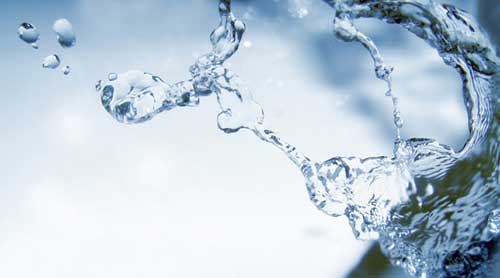Asheville Water Filtration and Purification Specialist
Professional Water Filtration Systems, Water Purification, and Water Softeners
Water is essential. If you have unhealthy water, chances are you will soon have an unhealthy body. That is why water filtration systems are so important.
Generally, water filtration or water purification are terms for what is needed to remove undesirable chemicals, metals, bacteria and dissolved solids from water. Although water softeners specifically address the hardness and minerals in water, sometimes they are incorrectly used for Asheville iron filtration. (More on the subject of iron filtration here.) Since the goal of water filtration or purification is to produce uncontaminated water fit for drinking, living, and maintaining the longevity of your household plumbing systems, it is critical to have it done right.
We Offer Testing and Custom Asheville Water Filtration
Whether you have well water or city water, in either case contaminants can cause trouble. So, if you need to clean up your water, fix a problem, maintenance your current filtration system, or just find out what the issue is, we’d love to help. We offer full EPA-certified Laboratory Water Testing in order to know exactly what is in your water and how to correct any problems.
Additionally, we are a Preferred Contractor with CSI Water Treatment Systems, and are fully trained and certified to offer a full range of water testing to determine the health and quality of the water that you drink, cook with, and bathe in everyday.
We install, repair, and maintain Water Softeners, Water Filtration Systems, Water Purifiers, Iron Filters, pH Neutralizers, Sediment Filters, Chemical Filters, UV Purifiers, Reverse Osmosis, and Chemical Water Treatment systems—everything you need to purify your water!
Give us a call at 828-774-7076 to discuss the water filtration system Ashevillle NC options that are available to you.
Do You Need Water Filtration?
Ask the Asheville Water Purification Experts when It Comes to Questions about Your Water Quality!
Whether you have a private well or are using municipal water from Asheville, there are dangers of contaminants or problems with your drinking water. Undoubtedly, you might not know if there are contaminants in your water, but you need to know! That’s why we offer and recommend running our comprehensive water analysis.
We collect water samples at your location but send them out to be analyzed in a laboratory. Since we can test for over 200 different contaminants and elements, including bacteria, nutrients, minerals, metals and heavy metals, any water issues you might be concerned about are covered. You will receive a detailed report of your water, and a quote for water filtration or purification based on your specific situation. If your water is in good condition and no water filtration system is needed, your test results will show that and you can set your mind at ease in either case.
We Solve Asheville Water Filtration Problems
Consult Goodman Plumbing if you have any questions about water filtration, water treatment or water purification! We have had specialized training in water filtration and can design custom filtration systems to meet your specific needs.
All in all, we’d love the opportunity to talk with you about your water.
There is a difference!
Choose the Asheville Plumbing Company with Quality Service & Integrity
When You Need a Good Man for the Job…
Call Goodman Plumbing!
We Only Install Professional-Grade Water Filtration
We don’t install products from DIY stores or Amazon, but only use professional-quality units customized for your needs. Accordingly, we are factory trained and certified preferred contractors for CSI and we are proud of it, because we believe that we are offering the best water filtration systems to our customers. If you are interested, we are glad to share our knowledge and can help you determine which type of water filtration is best for your needs.
Prompt and Professional Asheville Water Filtration
When you contact Goodman Plumbing about your water quality, you’ll receive prompt and professional service. We’ll schedule a licensed plumber right away.
Our plumber will ask you about the issues you are experiencing, examine your water system and give you an honest explanation of the problems and how to correct it. We never do any work until we’ve agreed on a plan for your water that’s best for you and your family.
Once we’ve agreed on a plan, we will install your water filtration on your schedule. We will never compromise your comfort or the purity of your water for the sake of a quick fix.
EPA-Certified Laboratory Water Testing
We offer EPA Certified Lab Water Testing for up to 200 elements and contanimants. If you have specific concerns about contaminants such as lead, chlorine or glysophate (aka RoundUp) we can guide you to the test and remediation that is best for you.
Call us today at if you have any questions about your water quality.
The Best in Asheville Water Filtration Repair or Installation!

Common Questions About Asheville Water Filtration Issues
How Do I Know If I Need Water Filtration?
There’s only one way to know: Test your water!
We offer water tests that are collected in the field but analyzed in an EPA-certified laboratory, and we can test for over 200 different contaminants and elements, including bacteria, nutrients, minerals, metals and heavy metals. You will receive a detailed report of your water, and a quote for water filtration or purification based on your specific situation. If your water is in good condition and no water filtration is needed, your test results will show that and you can set your mind at ease. Give us a call at 828-774-7076 and we can schedule an appointment that is convenient for you.
What Does It Mean If My Water is Orange?
There are many factors that could cause your water to turn orange and cause orange staining, but in Asheville water filtration is often needed for iron and iron bacteria. In fact, we run into this so much that we wrote a blog about the subject! You can read that here if you are interested. Of course you can call us at 828-774-7076 if you have any questions, we’d be glad to answer them.
Why Does My Water Smell Bad?
A sulfur smell in your water can be caused by contaminants in your water system or from problems with your fixtures. Call us at 828-774-7076 to schedule an appointment for our water filtration specialist to come check it out for you!
What If I Think My Water Has Bacteria In It?
You need to test your water immediately and do not drink it. Especially if you think you may have bacteria in your water, it is not something to wait on. E.coli can be present in well water and cause a great deal of harm to your health. We offer on-site testing for bacteria and UV-filtration options to keep it away. Give us a call at 828-774-7076 and we will schedule an appointment for you as soon as possible.
Why Is My Water Is Full of Grit?
If you are on a well and have gritty, sandy water you will most likely need a sediment filter, or possibly more than one. In some parts of Asheville or Weaverville water filtration is needed at a smaller micron than others. Please call Goodman Plumbing at 828-774-7076 and we will send someone out to help you!
What Kind of Water Filtration Do I Need If My Water Has Chlorine?
Asheville city water is notoriously bad for being over chlorinated and bad tasting. But the good news is, we can fix that for you! Give Goodman Plumbing a call at 828-774-7076 and we will help you get the pure water you need for drinking, bathing and healthy living.
What Kind of Maintenance Do Water Filtration Systems Need?
Water filtration systems are not all the same. Sediment filters will often need to be emptied regularly, some needs media replacement, but some other whole house water filtration systems can go for years without any maintenance at all. It just depends on what you are filtering!
Give us a call at 828-774-7076 and we can schedule an appointment to check on your water filtration system that is convenient for you.

Asheville Water Filtration Service Area:

How Can We Help You?
(828) 774-7076
Our office hours are Monday–Friday,
9am–5pm EST,
but you can contact us online anytime!
We promise never to spam you.









